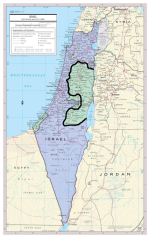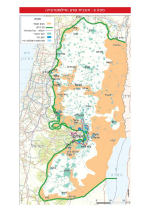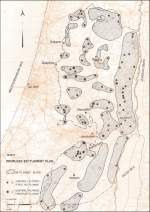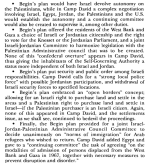Jackson Lennock
Well-known member
Moshe Dayan wanted to annex Bethlehem and Ramallah after 1967 along with East Jerusalem, extend citizenship to all people there, and have a single Greater Jerusalem urban zone. What if Israel had done that?

I think it's noteworthy that this wouldn't prevent Israel from continuing its settlement enterprise elsewhere. But the mental geography would be different. Suddenly settlements like Beit El, Ofra, and Tekoa are just over the Israeli-asserted border, rather than somewhat deep into the West Bank.
This would be about 350,000 to 400,000 more people, plus 200,000 OTL Permanent Residents are Citizens instead. They would be perhaps a third larger share of the electorate, which could make a difference in margin.
Ramallah and Bethlehem were very Christian towns at the time, which meant leftist politics but also lots of professionals and and highly educated people. They would be an organized force in Israeli politics if they chose to participate. It is also possible people would simply choose not to participate on principle.
How would the rest of the West Bank be organized? I am unsure. Dayan was interested in a Nablus-Jenin urban zone being treated as one self-governing unit and Hebron being another.
In the long-term, what is annexed may not stay annexed of course. Israel was willing to give up East Jerusalem in peace talks after all. But in the interim period, Israeli politics would be a couple notches to the left. And an influx of Christians and educated people generally into Israeli politics could lead to other Israeli Arabs/Israeli Palestinians being politically organized and engaged sooner.

I think it's noteworthy that this wouldn't prevent Israel from continuing its settlement enterprise elsewhere. But the mental geography would be different. Suddenly settlements like Beit El, Ofra, and Tekoa are just over the Israeli-asserted border, rather than somewhat deep into the West Bank.
This would be about 350,000 to 400,000 more people, plus 200,000 OTL Permanent Residents are Citizens instead. They would be perhaps a third larger share of the electorate, which could make a difference in margin.
Ramallah and Bethlehem were very Christian towns at the time, which meant leftist politics but also lots of professionals and and highly educated people. They would be an organized force in Israeli politics if they chose to participate. It is also possible people would simply choose not to participate on principle.
How would the rest of the West Bank be organized? I am unsure. Dayan was interested in a Nablus-Jenin urban zone being treated as one self-governing unit and Hebron being another.
In the long-term, what is annexed may not stay annexed of course. Israel was willing to give up East Jerusalem in peace talks after all. But in the interim period, Israeli politics would be a couple notches to the left. And an influx of Christians and educated people generally into Israeli politics could lead to other Israeli Arabs/Israeli Palestinians being politically organized and engaged sooner.




